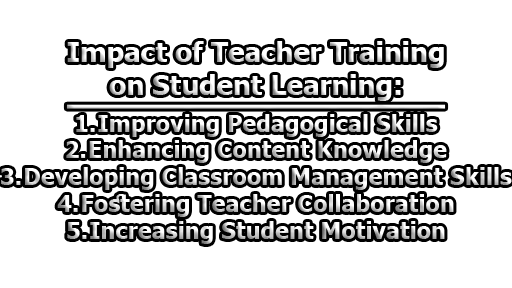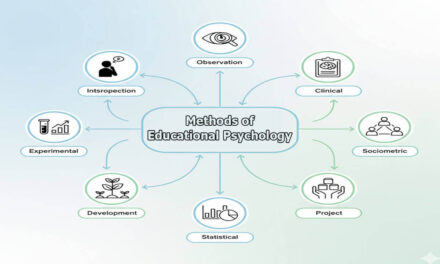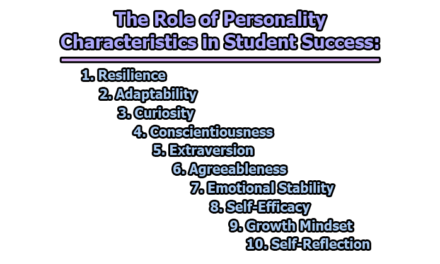Impact of Teacher Training on Student Learning:
Teacher training is an essential part of the educational system as it provides educators with the necessary skills, knowledge, and techniques to improve their teaching practices and, as a result, positively impact student learning. Teacher training encompasses a wide range of activities, including workshops, seminars, coaching, mentoring, and ongoing professional development. The quality of teacher training has a direct correlation with student learning outcomes. The more effective the training, the more significant the impact on student achievement. Therefore, it is crucial to understand the impact of teacher training on student learning and explore ways to improve teacher training to ensure that students receive the best possible education. There are many ways that teacher training can impact student learning. The following are some of the ways that teacher training can affect student achievement:
- Improving Pedagogical Skills: Teacher training helps teachers develop a better understanding of effective teaching strategies and techniques. By learning how to use these strategies, teachers can engage students and facilitate their learning, leading to improved academic performance.
- Enhancing Content Knowledge: Teacher training can also help teachers enhance their content knowledge. By gaining a deeper understanding of the subject matter, teachers can deliver more effective lessons, provide students with better explanations, and answer their questions with more clarity and confidence.
- Developing Classroom Management Skills: Teacher training can also help teachers develop effective classroom management skills. Effective classroom management techniques help create a positive learning environment, reduce disruptive behavior, and improve student engagement and academic performance.
- Fostering Teacher Collaboration: Teacher training can also facilitate collaboration among teachers. Collaborative activities, such as team teaching, lesson planning, and peer mentoring, can provide teachers with opportunities to share knowledge and best practices, leading to improved teaching practices and student learning outcomes.
- Increasing Student Motivation: Teacher training can also impact student motivation. Teachers who receive high-quality training are better equipped to create engaging and challenging learning experiences that motivate students to learn and achieve their goals.
Research studies have shown that teacher training can significantly impact student learning outcomes. For example, a study conducted by the National Institute for Learning Outcomes Assessment found that teacher training had a positive effect on student learning outcomes. The study found that teachers who received high-quality training were more likely to use effective teaching strategies, resulting in higher levels of student achievement.
Another study conducted by the American Institutes for Research found that professional development programs that focused on improving teaching practices had a positive impact on student learning outcomes. The study found that teachers who participated in the programs showed significant gains in their knowledge of effective teaching practices and their ability to apply them in the classroom. Additionally, their students demonstrated higher levels of academic achievement compared to students whose teachers did not participate in the programs.
In addition to these studies, other research has shown that teacher training can have a positive impact on student learning outcomes, particularly for students from disadvantaged backgrounds. For example, a study conducted by the National Bureau of Economic Research found that teacher professional development programs had a greater impact on the academic achievement of students from low-income families than those from higher-income families.
Despite the positive impact of teacher training on student learning outcomes, many challenges exist in providing effective and high-quality teacher training. One significant challenge is the lack of resources and funding for teacher training programs. Without adequate funding, many schools and districts may not be able to provide teachers with the necessary training to improve their teaching practices.
Another challenge is the lack of access to high-quality training programs. Many teachers may not have access to effective training programs in their schools or districts, making it difficult for them to improve their teaching practices.
Finally, the lack of incentives for teachers to participate in training programs can also be a barrier. Many teachers may not see the value in participating in training programs, particularly if they are not rewarded for doing so. Therefore, it is essential to provide teachers with incentives to participate in training programs. To address these challenges, several strategies can be implemented to improve the effectiveness and accessibility of teacher training programs. Some of these strategies include:
i. Providing Adequate Funding: Providing adequate funding for teacher training programs is essential to ensure that teachers have access to high-quality training. Governments and educational institutions should allocate sufficient resources to support teacher training programs and provide incentives for teachers to participate.
ii. Offering Online Training: Online training can be an effective way to provide teachers with access to high-quality training programs. Online training programs can be more flexible, accessible, and affordable than traditional training programs, making it easier for teachers to participate.
iii. Creating Teacher-Led Training Programs: Teacher-led training programs can be an effective way to improve the accessibility and effectiveness of teacher training. These programs can be designed and delivered by experienced teachers who have a deep understanding of effective teaching practices.
iii. Providing Incentives: Providing incentives for teachers to participate in training programs can be an effective way to encourage their participation. These incentives can include financial rewards, career advancement opportunities, and recognition for their achievements.
In conclusion, teacher training is a critical factor in improving student learning outcomes. Effective teacher training can improve teaching practices, enhance content knowledge, develop classroom management skills, foster collaboration among teachers, and increase student motivation. However, many challenges exist in providing effective and high-quality teacher training, including lack of resources and funding, lack of access to high-quality training programs, and lack of incentives for teachers to participate. To address these challenges, strategies such as providing adequate funding, offering online training, creating teacher-led training programs, and providing incentives can be implemented to improve the effectiveness and accessibility of teacher training programs. By addressing these challenges, we can ensure that teachers receive the necessary training to improve their teaching practices and provide students with the best possible education.
References:
- Darling-Hammond, L. (2017). Teacher education around the world: What can we learn from international practice? European Journal of Teacher Education, 40(3), 291-309.
- National Institute for Learning Outcomes Assessment. (2014). Improving student learning through teacher education. Retrieved from https://www.learningoutcomesassessment.org/wp-content/uploads/2014/10/NILOA-synthesis13-TeacherEd.pdf
- American Institutes for Research. (2015). The impact of professional development on teachers’ instructional practices and students’ academic achievement. Retrieved from https://www.air.org/resource/impact-professional-development-teachers-instructional-practices-and-students-academic
- National Bureau of Economic Research. (2015). The effects of teacher professional development on gains in student achievement: How meta-analysis provides evidence useful to education leaders. Retrieved from https://www.nber.org/system/files/working_papers/w22021/w22021.pdf
- Garet, M. S., Porter, A. C., Desimone, L., Birman, B. F., & Yoon, K. S. (2001). What makes professional development effective? Results from a national sample of teachers. American Educational Research Journal, 38(4), 915-945.
- Guskey, T. R. (2002). Professional development and teacher change. Teachers and Teaching, 8(3), 381-391.
- Desimone, L. M. (2011). A primer on effective professional development. Phi Delta Kappan, 92(6), 68-71.
- Smith, T. M., Ingersoll, R. M., & Strong, M. (2018). What are we learning about teacher induction? An analysis of 10 years of research. Review of Educational Research, 88(4), 547-588.
- Hawley, W. D., & Valli, L. (1999). The essentials of effective professional development: A new consensus. In L. Darling-Hammond & G. Sykes (Eds.), Teaching as the learning profession: Handbook of policy and practice (pp. 127-150). San Francisco, CA: Jossey-Bass.
- Jackson, C. K. (2018). What do test scores miss? The importance of teacher effects on non-test score outcomes. Journal of Political Economy, 126(5), 2072-2107.

Library Lecturer at Nurul Amin Degree College










